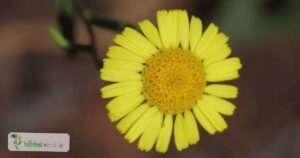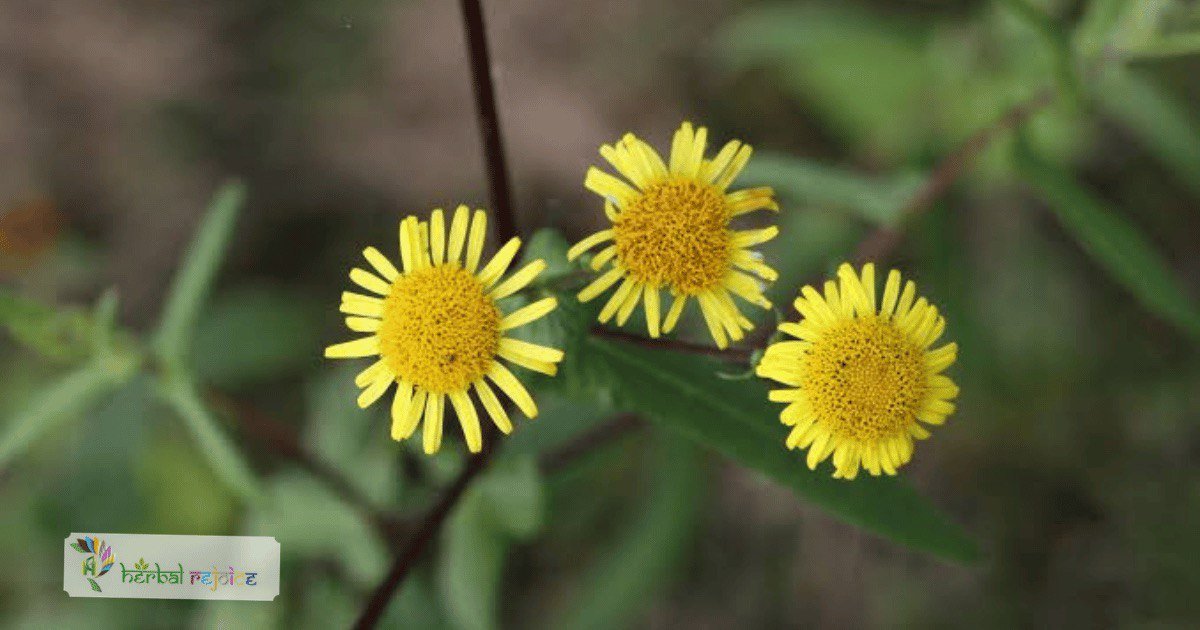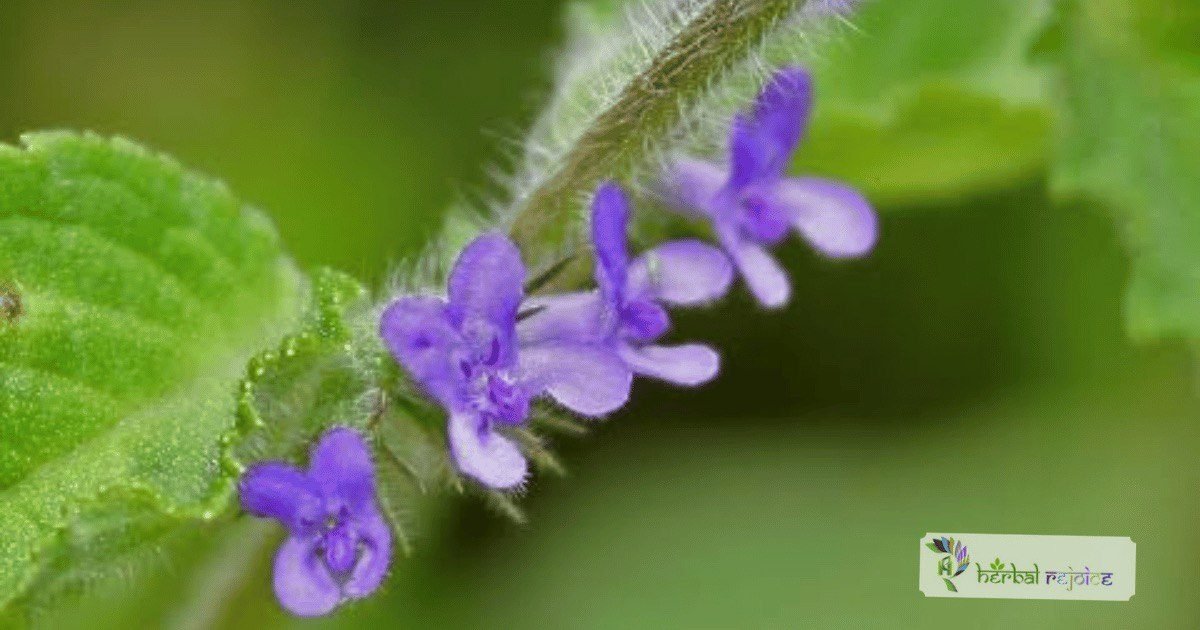Introduction:
Vicoa indica, also known as Vandhyaavari in Ayurveda, is a herb widely distributed throughout the drier regions of India. It is a herb with significant potential in reproductive health and inflammation-related conditions. It acts as a natural contraceptive.

Names and Habitat
It is commonly found in the Himalayas, where it can be found at altitudes of up to 1,800 meters. This article explores the medicinal properties of Vicoa indica, its traditional uses in Ayurveda and Siddha medicine, as well as its actions and potential health benefits.
Traditional Uses of Vandhyaavari:
In Ayurveda, Vicoa indica is known as Vandhyaavari and has been used as a natural contraceptive. In Siddha and Tamil medicine, it is commonly known as Jimikipoo, Mookuti, or Poondu.
Additionally, in folklore, it is referred to as Banjhori or Vajarangi. The various traditional uses of Vicoa indica reflect its significance in reproductive health and its potential as a natural remedy for infertility.
Medicinal Properties and Active Compounds:
Vicoa indica contains several bioactive compounds that contribute to its medicinal properties. The aerial parts of the plant are rich in sesquiterpene lactones, including vicolide A-D.
It also contains 28-nortriterpenoidal glucosides (vicoside A and B), triterpenoid vicosigenin, and monoterpenediol vicodiol. Additionally, it contains n-alkanes and n-alkanoic acid esters.
Anti-Inflammatory Properties of Vandhyaavari
One of the notable actions of Vandhyaavari is its anti-inflammatory activity. Studies have shown that vicolide A-D, present in the plant, exhibit anti-inflammatory effects against cotton pellet granuloma in rats.
This suggests that Vandhyaavari may have potential applications in the treatment of inflammatory conditions.
Antipyretic and Anti-Oestrogenic Properties of Vandhyavaari
Vicolide D, an active compound found in Vandhyaavari , has been found to possess antipyretic activity, making it effective in reducing fever. Moreover, it has also been identified as having anti-oestrogenic properties.
This suggests that Vandhyaavari may have potential applications in managing hormonal imbalances and related conditions.
Antifertility Activity of Vandhyaavari
The presence of vicolide B and D in Vandhyaavari has been associated with its antifertility activity. These compounds have been found to exhibit contraceptive effects, potentially making Vicoa indica a natural contraceptive.
However, it is important to note that vicolide A and C do not possess antifertility properties.
Conclusion:
Vicoa indica, also known as Vandhyaavari, is a herb with significant potential in reproductive health and inflammation-related conditions. Its traditional uses as a natural contraceptive in Ayurveda and other traditional systems of medicine highlight its importance in women’s health.
The presence of bioactive compounds, such as vicolide A-D, vicoside A and B, vicosigenin, and vicodiol, contribute to its medicinal properties.
Frequently Asked Questions
What is Vandhyaavari and where is it commonly found?
Vicoa indica, also known as Vandhyaavari, is a herb widely distributed throughout the drier regions of India. It is commonly found in the Himalayas, at altitudes of up to 1,800 meters.
What are the traditional uses of Vandhyaavari ?
In Ayurveda, Vicoa indica is known as Vandhyaavari and has been used as a natural contraceptive. In Siddha and Tamil medicine, it is commonly known as Jimikipoo, Mookuti, or Poondu. Additionally, in folklore, it is referred to as Banjhori or Vajarangi.
What medicinal properties does Vandhyaavari possess?
Vandhyaavari contains several bioactive compounds that contribute to its medicinal properties. These include sesquiterpene lactones, 28-nortriterpenoidal glucosides, triterpenoid vicosigenin, and monoterpenediol vicodiol.
Does Vandhyaavari have anti-inflammatory properties?
Yes, Vandhyaavari exhibits anti-inflammatory activity. The sesquiterpene lactones present in the plant have been shown to have anti-inflammatory effects against cotton pellet granuloma in rats.
Can Vandhyaavari reduce fever?
Yes, one of the active compounds found in Vandhyaavari, vicolide D, possesses antipyretic properties, making it effective in reducing fever.
Does VandhyaavarVandhyaavari i have any hormonal effects?
Yes, vicolide D, found in Vandhyaavarii, has been identified as having anti-oestrogenic properties. This suggests that Vicoa indica may have potential applications in managing hormonal imbalances and related conditions.
Is Vandhyaavari a natural contraceptive?
Yes, vicolide B and D, present in Vandhyaavari, have been associated with its antifertility activity, potentially making it a natural contraceptive.
Are all the compounds in Vandhyaavari effective as contraceptives?
No, only vicolide B and D have been found to exhibit contraceptive effects. Vicolide A and C do not possess antifertility properties.
What other potential health benefits does Vandhyaavari have?
Vandhyaavari has potential applications in reproductive health, managing hormonal imbalances, and treating inflammatory conditions.
Is Vandhyaavari safe to use as a natural contraceptive?
The safety and efficacy of using Vandhyaavarii as a natural contraceptive have not been fully established.
Are there any side effects associated with Vandhyaavari?
There is limited information available on the side effects of Vandhyaavari.
Are there any specific dosage recommendations for Vandhyaavari?
There are no standardized dosage recommendations for Vandhyaavari. It is important to consult with a qualified healthcare professional for guidance on dosage and usage.
Does Vandhyaavari interact with any medications?
There is limited information available on potential drug interactions with Vandhyaavari. It is always important to consult with a healthcare professional if you are taking any medications before using herbal remedies.
Can Vandhyaavari be used during pregnancy or breastfeeding?
There is limited information available on the safety of using Vandhyaavarii during pregnancy or breastfeeding. It is best to avoid using it during these times unless specifically recommended by a healthcare professional.
Can Vandhyaavari be used to manage menstrual disorders?
Vandhyaavari has been traditionally used in Ayurveda for reproductive health, which includes managing menstrual disorders.
Is Vandhyaavari commonly used in Ayurvedic medicine?
Yes, Vicoa indica, known as Vandhyaavari in Ayurveda, has been used for its medicinal properties in Ayurvedic medicine, particularly in the area of reproductive health.





